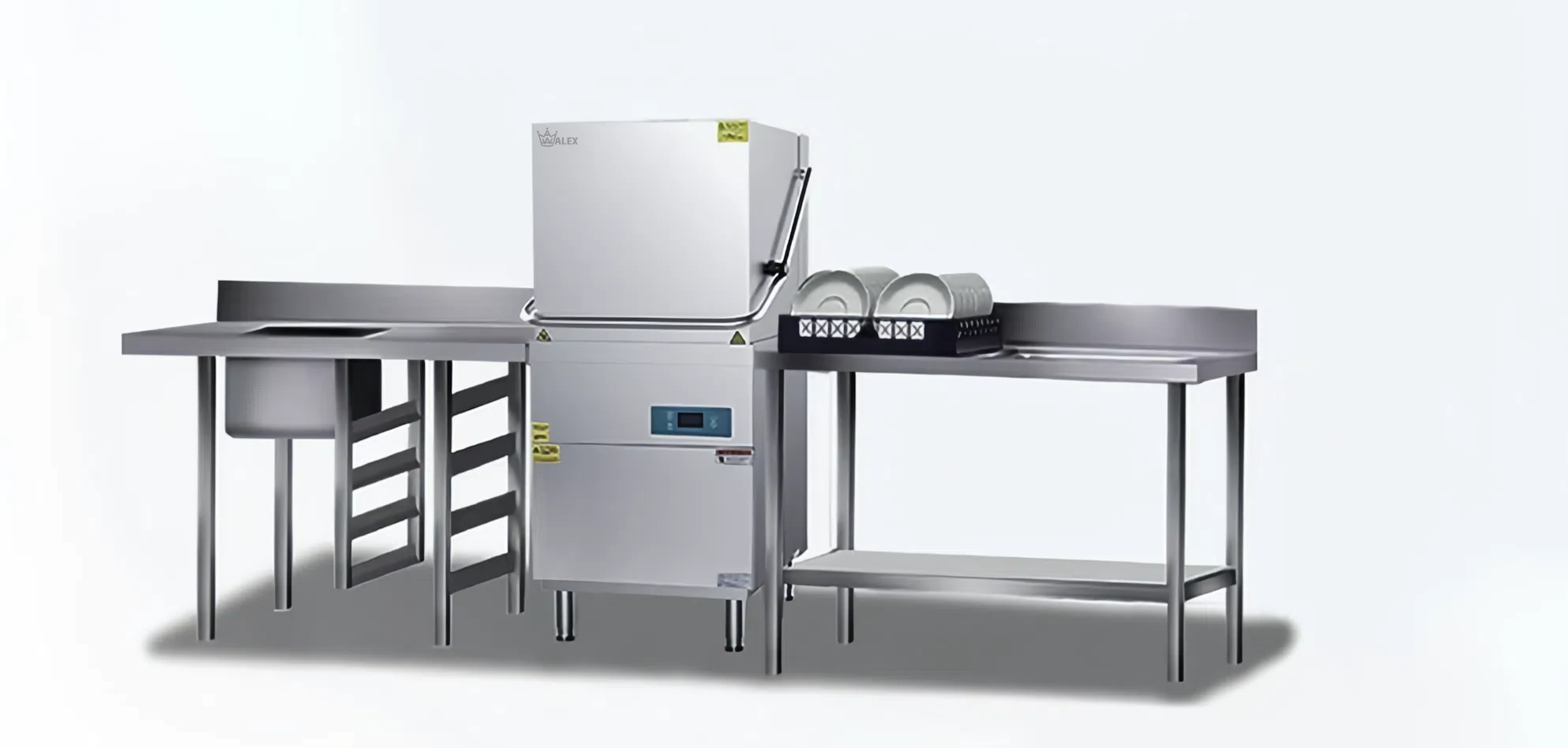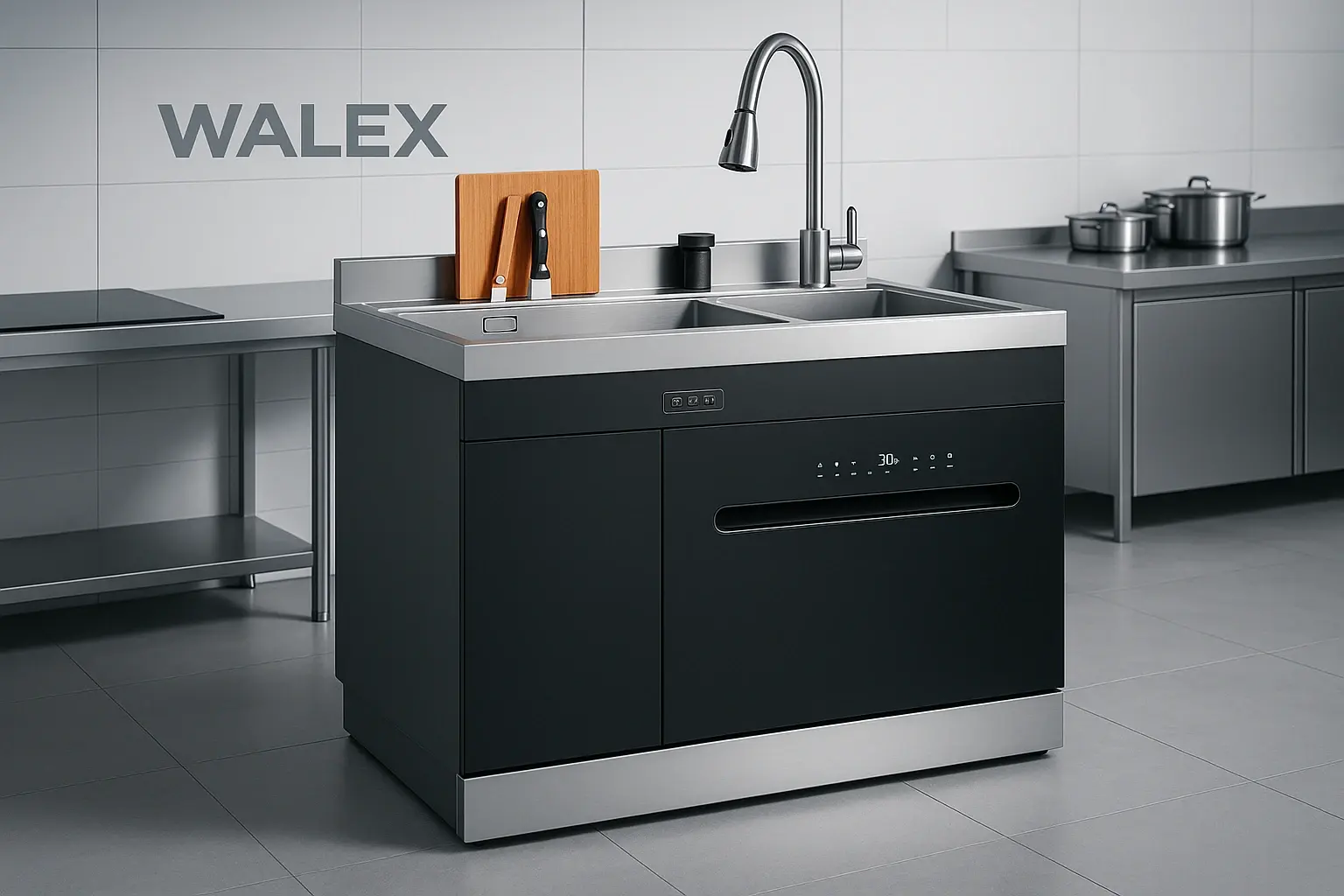The commercial dishwashing industry represents a critical component of foodservice operations, encompassing a sophisticated ecosystem of equipment, services, and specialized support that ensures operational efficiency and regulatory compliance. This comprehensive analysis examines the professional service landscape surrounding commercial dishwashers, providing B2B decision-makers with practical insights into equipment procurement, installation, maintenance, and lifecycle management strategies.
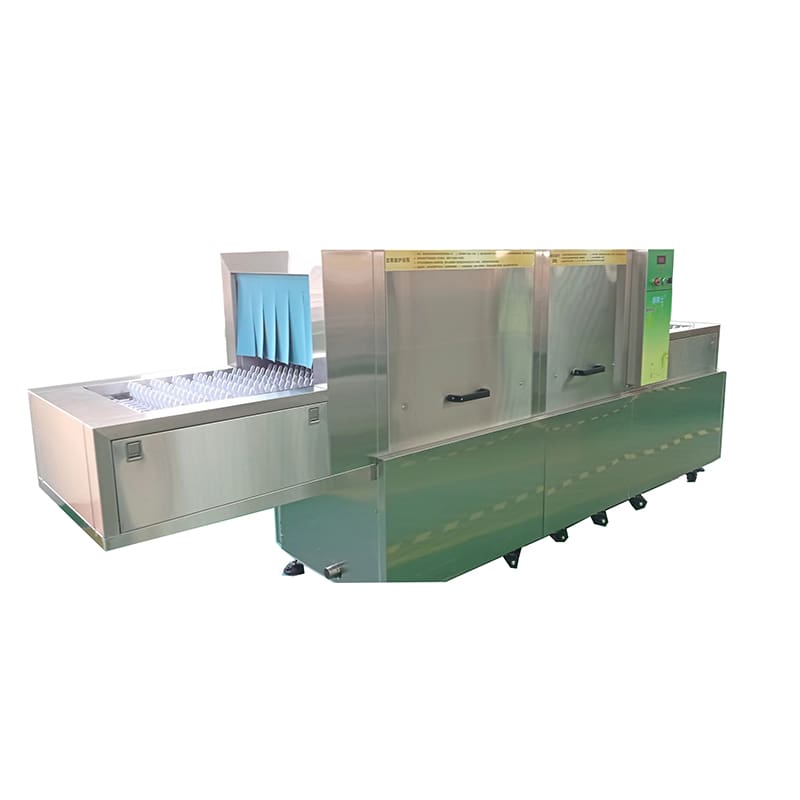
A stainless steel commercial conveyor dishwasher designed for high-volume kitchen operations
Executive Summary
The commercial dishwasher market continues to evolve rapidly, driven by technological advancement, regulatory requirements, and changing operational demands. With market growth projected at 4.5% CAGR through 2030, the industry is witnessing significant transformation in service delivery models, equipment capabilities, and customer expectations. Professional service providers are adapting to meet these demands through comprehensive lifecycle support programs that extend far beyond basic equipment sales.
Equipment Pricing and Market Positioning
Restaurant Dishwasher Price Analysis
Commercial dishwasher pricing varies dramatically based on capacity, technology level, and operational requirements. For restaurant operators evaluating dishwasher for restaurant price considerations, understanding the equipment categories is essential for informed decision-making. Entry-level undercounter units serve small establishments with prices ranging from $2,000 to $4,000, while high-capacity conveyor systems designed for large-scale operations command investments between $10,000 and $20,000.
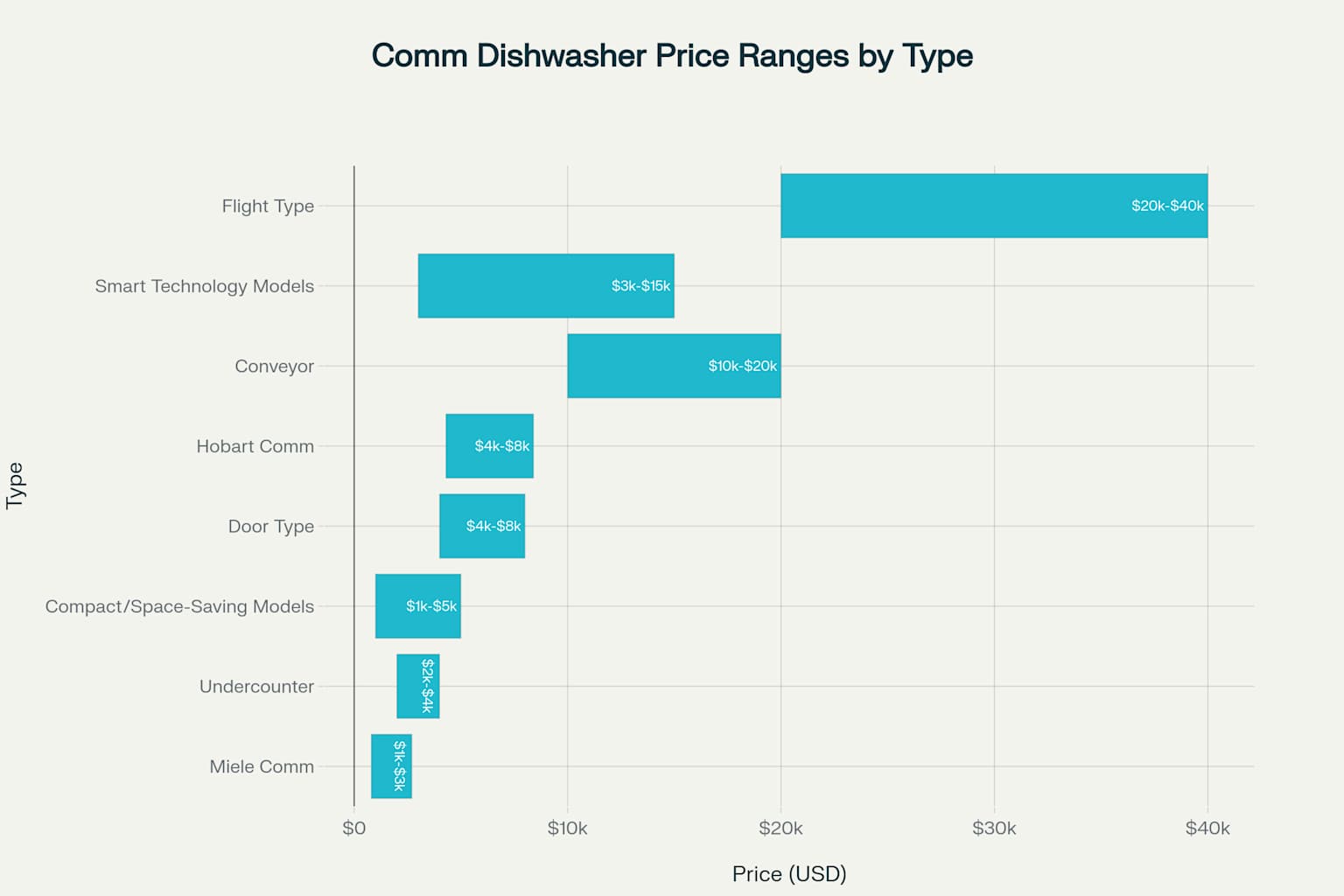
Commercial Dishwasher Price Ranges by Equipment Type – Investment costs vary significantly based on capacity and technology level
The pricing structure reflects not only equipment capability but also the comprehensive service ecosystem that supports each installation. Professional-grade systems require specialized installation, ongoing maintenance, and compliance verification, factors that significantly influence total cost of ownership calculations.
Miele Commercial Dishwasher Prices and Premium Positioning
Miele commercial dishwasher prices represent the premium segment of the market, with units ranging from $800 to $2,700 for standard commercial applications. These systems emphasize durability, energy efficiency, and advanced control systems that justify higher initial investment through reduced operational costs and extended service life. Premium manufacturers like Miele typically offer comprehensive service packages that include installation, training, and extended warranty coverage.
The investment in premium equipment often correlates with reduced service frequency requirements and lower long-term maintenance costs. Professional kitchens operating Miele systems report average service intervals of 6-8 months compared to 3-4 months for economy-grade equipment, demonstrating the value proposition of higher initial investment.
Professional Installation and Commissioning Services
Technical Installation Requirements
Commercial dishwasher installation requires specialized expertise encompassing plumbing, electrical, ventilation, and regulatory compliance considerations. Professional installation teams must navigate complex requirements including water pressure specifications, drainage capacity, electrical load calculations, and ventilation hood integration. Installation costs typically range from $200 to $800 per unit, depending on complexity and site conditions.
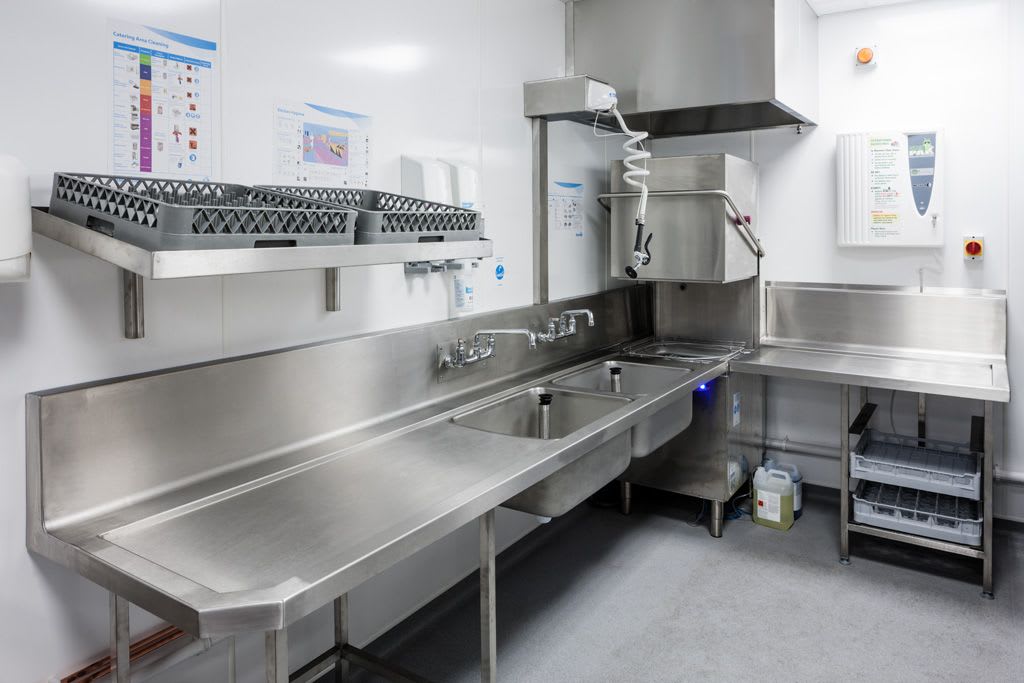
A professionally designed commercial kitchen dishwashing area with stainless steel equipment and organized dish racks
Proper commissioning involves comprehensive system testing, staff training, and documentation of operational parameters. This process ensures equipment meets manufacturer specifications and complies with local health department requirements. Professional installers typically provide written commissioning reports that serve as baseline documentation for warranty claims and regulatory inspections.
Regulatory Compliance and Code Requirements
Commercial dishwashing installations must comply with multiple regulatory frameworks including NSF certification, local health department standards, and energy efficiency requirements. Professional installers maintain current knowledge of FDA Food Code requirements, which mandate specific temperature thresholds and sanitization protocols. High-temperature dishwashers must achieve minimum final rinse temperatures of 180°F, while low-temperature chemical sanitizing units require precise chemical concentration monitoring.
Maintenance and Repair Service Ecosystem
Preventive Maintenance Programs
Commercial dishwashing services encompass comprehensive preventive maintenance programs designed to maximize equipment uptime and extend operational life. Professional service providers typically offer monthly or quarterly maintenance schedules that include filter cleaning, spray arm inspection, descaling procedures, and chemical system calibration. These programs cost between $150 and $400 per visit but prevent costly breakdowns that can halt kitchen operations.
Effective maintenance programs address the primary failure modes of commercial dishwashers: scale buildup, chemical residue accumulation, and mechanical wear. Service technicians utilize specialized diagnostic equipment to monitor water quality, chemical concentrations, and temperature profiles. This data-driven approach enables predictive maintenance strategies that identify potential issues before they result in equipment failure.
Emergency Repair Services
Commercial dishwasher specialists provide emergency repair services recognizing that equipment failure can severely impact restaurant operations. Professional repair services typically guarantee response times within 4-24 hours, with many providers offering same-day service for critical failures. Repair costs range from $100 to $500 per incident, depending on component requirements and labor complexity.
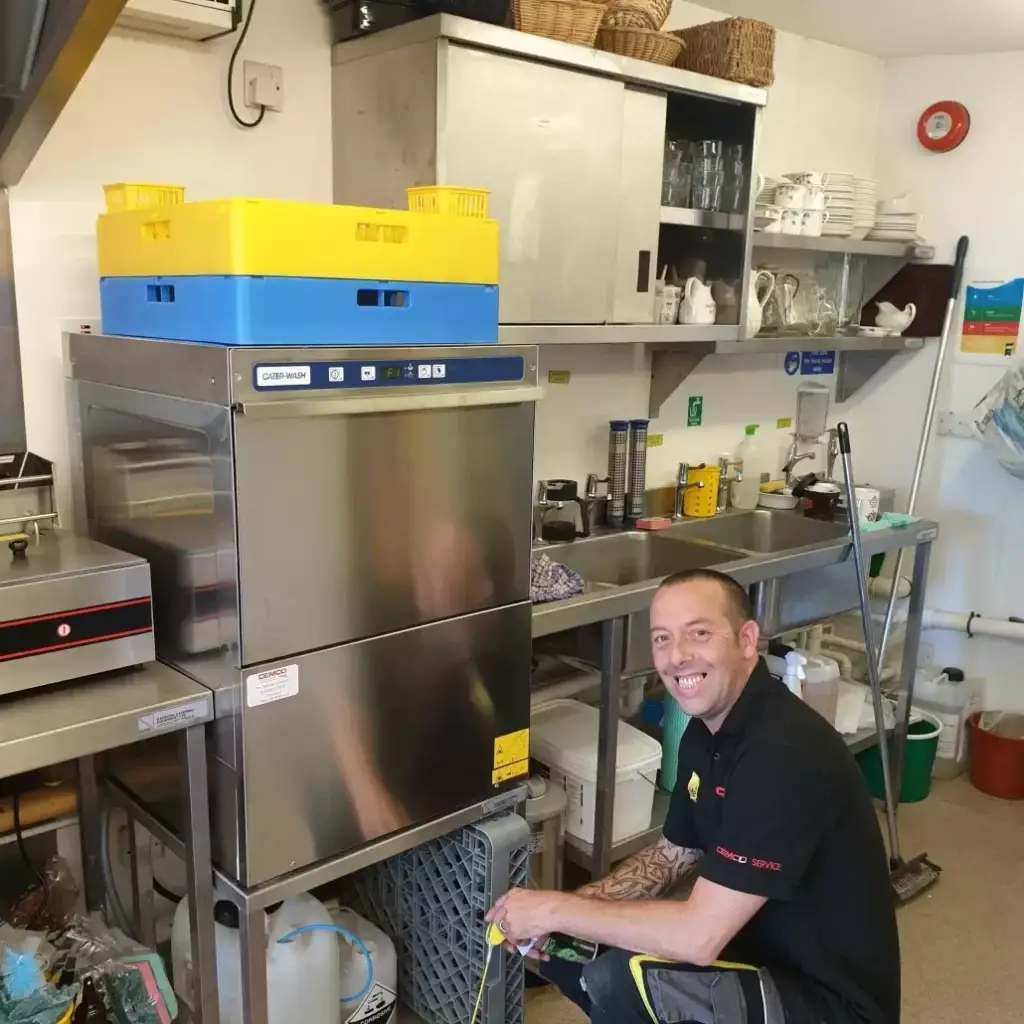
A technician from Cemco Service attends to a Cater-Wash commercial dishwasher in a professional kitchen
Successful repair programs maintain extensive parts inventories and employ technicians certified by major equipment manufacturers. This expertise ensures accurate diagnosis and efficient repair execution, minimizing downtime and operational disruption. Many service providers offer performance guarantees and warranty coverage on repair work, providing additional value and peace of mind for operators.
Equipment Rental and Leasing Solutions
Rental Program Benefits
Equipment rental and leasing programs have emerged as attractive alternatives to outright equipment purchase, particularly for seasonal operations, temporary facilities, and cash flow management. Commercial dishwasher services ltd companies offer comprehensive rental packages that include equipment, installation, maintenance, and chemical supply for monthly fees ranging from $150 to $800.
Rental programs eliminate capital investment requirements while providing access to current technology and comprehensive service support. These arrangements typically include 24/7 emergency service, preventive maintenance, and equipment replacement guarantees. For operators managing multiple locations or seasonal variations, rental programs provide operational flexibility and predictable cost structures.
Leasing Financial Advantages
Commercial dishwasher leasing arrangements offer tax advantages and cash flow benefits that appeal to many business operators. Lease payments are typically treated as operational expenses rather than capital expenditures, providing immediate tax deductions. Additionally, leasing agreements often include service packages that encompass maintenance, repair, and upgrade provisions.
Technology Integration and Smart Solutions
IoT and Remote Monitoring Systems
The commercial dishwashing industry is experiencing rapid adoption of smart technology solutions that enable remote monitoring, predictive maintenance, and operational optimization. IoT-enabled dishwashers provide real-time data on water usage, energy consumption, chemical levels, and cycle performance. This information enables operators to optimize efficiency and identify potential issues before they impact operations.

Commercial Dishwashing Market Trends – Growth rates by technology and service category showing smart/IoT leading market expansion
Cloud-based monitoring systems offer significant operational benefits including continuity assurance, cost optimization, and compliance documentation. These systems can automatically alert management to low chemical levels, excessive water consumption, or temperature deviations that could compromise sanitation effectiveness. The integration of smart technology represents the fastest-growing segment of the commercial dishwashing market with 9.4% annual growth.
Predictive Maintenance Applications
Advanced dishwashing systems incorporate predictive maintenance capabilities that analyze operational patterns to forecast component replacement needs and maintenance requirements. These systems monitor motor current, water flow rates, temperature profiles, and cycle times to identify gradual performance degradation that precedes equipment failure.
Predictive maintenance programs reduce emergency repair costs by 30-40% while extending equipment life by 15-20%. Professional service providers leverage this technology to optimize maintenance schedules and parts inventory management, providing more cost-effective service delivery for their clients.
Training and Certification Programs
Operational Training Requirements
Professional dishwashing operations require comprehensive staff training to ensure proper equipment operation, safety compliance, and sanitation effectiveness. Training programs typically cost between $200 and $1,000 and cover equipment operation procedures, chemical handling protocols, safety requirements, and troubleshooting techniques.
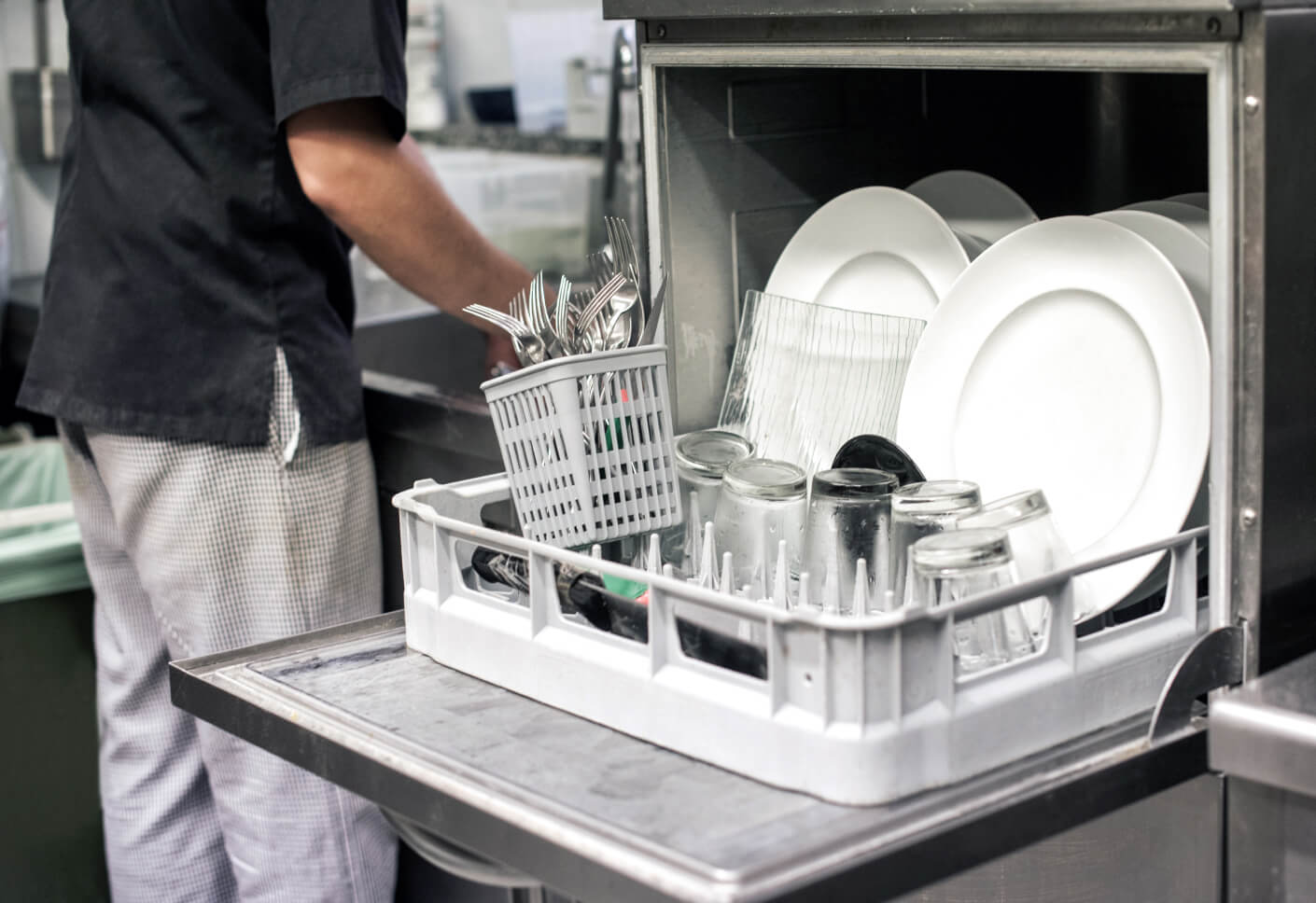
A commercial dishwasher in a professional kitchen with a rack of dishes and cutlery, illustrating daily operation
Effective training programs combine classroom instruction with hands-on practice, ensuring staff members understand both theoretical principles and practical application. Many programs include certification components that document individual competency levels and provide ongoing professional development pathways.
Regulatory Compliance Training
Commercial kitchen staff must understand regulatory requirements governing dishwashing operations, including FDA Food Code provisions, OSHA safety standards, and local health department requirements. Professional training programs address temperature monitoring, chemical concentration testing, and documentation requirements that support regulatory compliance.
Chemical Supply and Management Programs
Integrated Chemical Programs
Professional chemical supply programs provide comprehensive solutions that include product supply, dispensing equipment, monitoring systems, and technical support. These programs typically cost between $50 and $300 per month and ensure optimal cleaning performance while controlling chemical costs. Professional suppliers provide regular service visits to monitor chemical consumption, adjust dispensing rates, and maintain equipment calibration.
Chemical program providers offer expertise in product selection, concentration optimization, and cost management that individual operators cannot efficiently maintain internally. These programs often include performance guarantees and provide technical support for challenging cleaning applications.
Sustainability and Environmental Compliance
Modern chemical programs emphasize sustainability through concentrated formulations, biodegradable ingredients, and packaging reduction initiatives. Professional suppliers help operators navigate environmental regulations while maintaining cleaning effectiveness and cost control. Many programs include reporting capabilities that document chemical usage and environmental impact metrics.
Marketing and Promotional Strategies
Finish Dishwasher Advert Campaigns
The dishwashing industry employs sophisticated marketing strategies that emphasize emotional connections and practical benefits rather than purely functional attributes. Finish dishwasher advert campaigns have successfully repositioned dishwashing from mundane necessity to essential lifestyle enabler, demonstrating how effective marketing can transform commodity products into preferred brands.
Professional marketing strategies in the commercial sector focus on demonstrating return on investment, operational efficiency gains, and risk mitigation benefits. Successful campaigns combine technical documentation with case studies and testimonials from actual users, providing credible evidence of performance claims.
Digital Marketing Integration
Modern equipment suppliers leverage digital marketing platforms including social media, content marketing, and search engine optimization to reach target audiences. Professional service providers utilize these channels to demonstrate expertise, share educational content, and build relationships with potential clients. Digital strategies enable precise targeting and measurable results that traditional marketing approaches cannot achieve.
Blueprint for Professional Kitchen Design
Effective commercial dishwashing operations require careful integration within overall kitchen design, considering workflow patterns, space utilization, and regulatory requirements. Professional kitchen designers must balance accessibility, efficiency, and compliance considerations to create optimal dishwashing environments.

Professional blueprint illustrating the layout of a commercial kitchen, highlighting the dedicated dishwashing area with multiple sinks and dishwashing machines
The dishwashing area represents a critical component of kitchen workflow, requiring coordination with food preparation, service, and storage areas. Professional design considerations include adequate space for pre-rinse operations, dish sorting, clean storage, and equipment maintenance access.
Future Industry Trends and Opportunities
Market Growth Projections
The commercial dishwasher market continues expanding driven by foodservice industry growth, technology advancement, and evolving regulatory requirements. Smart technology integration, energy efficiency improvements, and service model innovation represent primary growth drivers that will shape industry development through 2030.
Professional service providers must adapt to changing customer expectations including increased technology sophistication, sustainability requirements, and service integration demands. Companies that successfully navigate these trends will capture disproportionate market share in the evolving competitive landscape.
Emerging Service Models
Innovative service models including comprehensive outsourcing, performance-based contracts, and technology-as-a-service offerings are gaining traction within the commercial dishwashing sector. These models shift risk from operators to service providers while enabling access to advanced technology and expertise that smaller operators cannot economically maintain independently.
Conclusion
The commercial dishwasher professional service ecosystem represents a sophisticated network of equipment suppliers, service providers, and technology innovators working together to support foodservice operations. Success in this environment requires understanding the interconnections between equipment selection, service requirements, regulatory compliance, and operational efficiency objectives.
Professional operators who leverage comprehensive service ecosystems achieve superior operational outcomes through reduced downtime, optimized performance, and enhanced regulatory compliance. The investment in professional services typically generates positive returns through improved efficiency, reduced risk, and enhanced operational reliability.
As the industry continues evolving toward greater technology integration and service sophistication, operators who establish relationships with qualified professional service providers will be best positioned to capitalize on emerging opportunities while managing operational risks effectively. The commercial dishwasher service ecosystem will continue expanding to meet these evolving needs through innovation, specialization, and comprehensive solution delivery.
